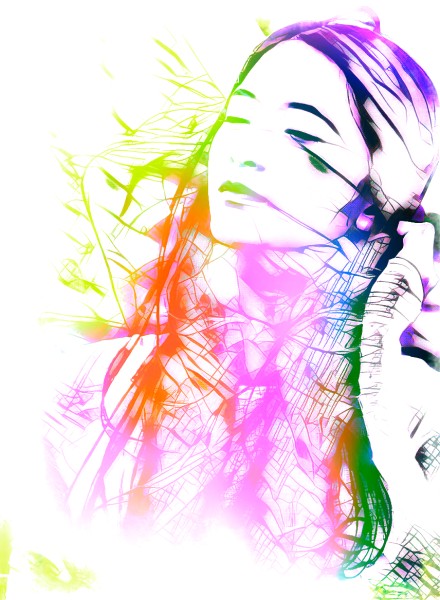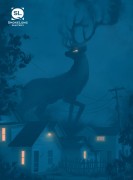When I was nine, my friend Yumi asked if I loved her and did I want to prove just how much? It was summer, and the breath of August was sticky and wet. Moths died in little ashen heaps on my windowsill at night, or we’d smack our palms against their wings as they alighted on the white walls of my room. I was an only child. I slept in a bunk bed, even though my mother had resolved to not have any more children after me.
“Maybe we’ll adopt one day,” she teased my father when he was still alive, and I wondered at them choosing a son or a daughter like one might choose a puppy: Is he well behaved? Does he believe in God? Is she capable of working hard no matter how much it hurts? Because only through endless labor will she find the meaning of her life. Does she understand this? Is she beautiful? Is she good?
Yumi was an only child too. She tapped the serrated edge of a knife against the veins of my wrist and in the steel I couldn’t see the borders of my face. My mouth was a black smear. She said it would bond us. Two incisions. Lifelines strung taut. A cat’s cradle of bloody thread between our hands, and you will be my sister.
When I am old enough to leave my mother for a different woman, I will draw the letters of her name in the air with my knife. I will sign for her in a language that I hope she will grow to love and speak back to me. But she won’t. She will call me a foreigner. She will tell me I am sick.
In my memory, with the moths in rings above our heads, Yumi tells me I am beautiful.
Afterwards, we crawled onto the top bunk where I held her bandaged palm between my legs for hours. I kissed the splotches of brown on the back of her thigh where she’d once been struck with the lit end of a sparkler. I memorized their shapes like the closing lines of my favorite poem. I let her blow gently on my wounds for years. I couldn’t see the world beyond her hair, straight and dark as ink pouring into my mouth as I said don’t leave me, opened wide, said please.



 The core workshop of SmokeLong Fitness is all in writing, so you can take part from anywhere at anytime. We are excited about creating a supportive, consistent and structured environment for flash writers to work on their craft in a community. We are thrilled and proud to say that our workshop participants have won, placed, or been listed in every major flash competition. Community works.
The core workshop of SmokeLong Fitness is all in writing, so you can take part from anywhere at anytime. We are excited about creating a supportive, consistent and structured environment for flash writers to work on their craft in a community. We are thrilled and proud to say that our workshop participants have won, placed, or been listed in every major flash competition. Community works.